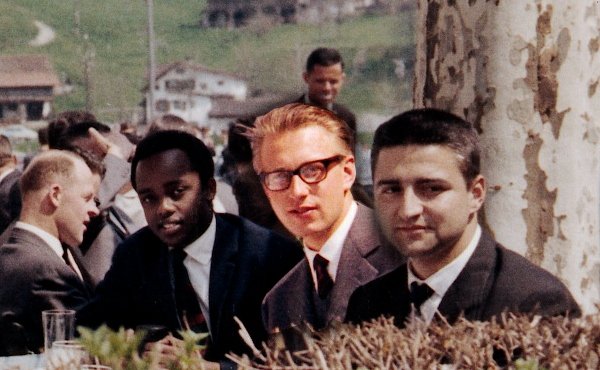Winter, 1984-85. After a professional meeting at the Limmat Foundation headquarters in Zurich, Toni Zweifel drove Michel Baroni, a Frenchman, to the main station. They found themselves in a minor traffic jam on the way, and it became increasingly likely that they would not make it to the station before the train for Paris. Eventually Toni let his guest out, directing him to walk through a shortcut. It seemed futile: Baroni arrived two minutes late. However, to his surprise, when he got to the platform he found the train waiting and Toni beside it. Toni had arrived on time by car and he convinced the conductor to delay the train’s departure for Baroni. "As you can see," he said, smiling, "in Switzerland, we are willing to do anything for a Frenchman; we’ll even allow our trains to leave late!"
This anecdote is typical of Toni: he was clever and proactive in caring for others. He had learned from St. Josemaría that love for others involves more than organizational or financial contributions to humanitarian projects; it is meant to permeate personal relationships.
Others felt comfortable with Toni. He was always ready to talk, take on household tasks, or help solve specific problems. He was available for others while taking care of numerous daily tasks and difficulties. To manage everything, Toni meticulously planned his time, adjusting his schedule for any unexpected events. But he did it all with very good humor.
He was especially affectionate towards his mother. She suffered from depression later in life and often looked to him for moral support. Toni dedicated himself to her in long phone conversations and days he took off to visit, accompany, and encourage her.
Like everyone in contact with other people, both at home and at work, Toni met with others’ flaws and limitations. He approached them with great understanding and patience. To avoid negativity, he consciously focused on each person’s positive characteristics and sincerely admired them. Sometimes he even put those characteristics into writing and reflected on them in prayer. This did not prevent him from pointing out someone's faults when doing so was objective and timely, but he always made corrections sympathetically and without giving lectures.
In turn, he allowed himself to be corrected. Initially, he was too exacting about time management. Therefore, as soon as he finished his coffee in the early afternoon, he rushed out of the house to get to the office. One day, someone pointed out that this made the others uneasy and a bit tense. From then on, he changed his habit: he stayed at home for a while, finishing a few tasks before calmly returning to his office.
He reacted with charity when treated unfairly. This was particularly evident when he was about to realize his project of building an international meeting center. In the final stretch, a violent media controversy erupted for many months, with humiliations and false stories in the press, ultimately preventing the project's completion. His constructive work carried out with the best of intentions over several years collapsed. However, during all that time, he did not make any bitter or disparaging comments, even in private.
In summary, the Christian faith had made Toni a thoughtful person: good-humored, considerate, ready to help, inspiring trust. The ideal of love for one's neighbor became a concrete reality in his life.
